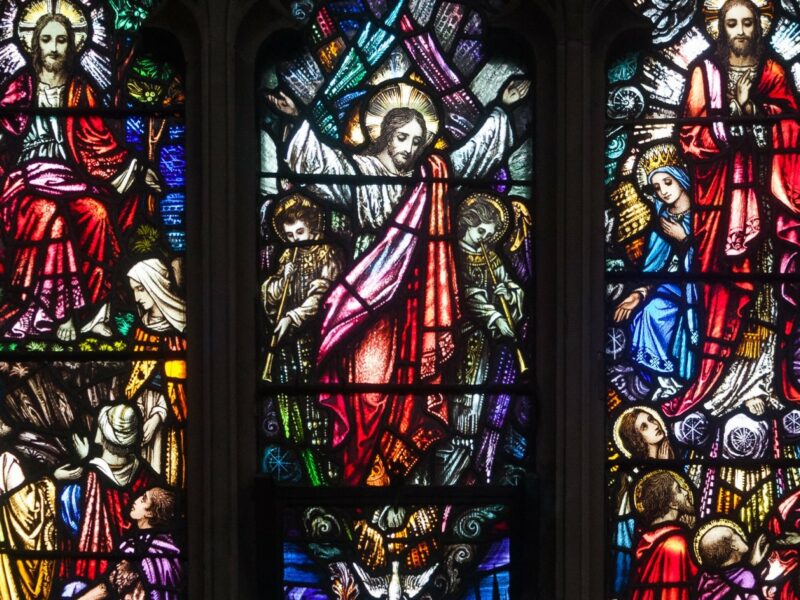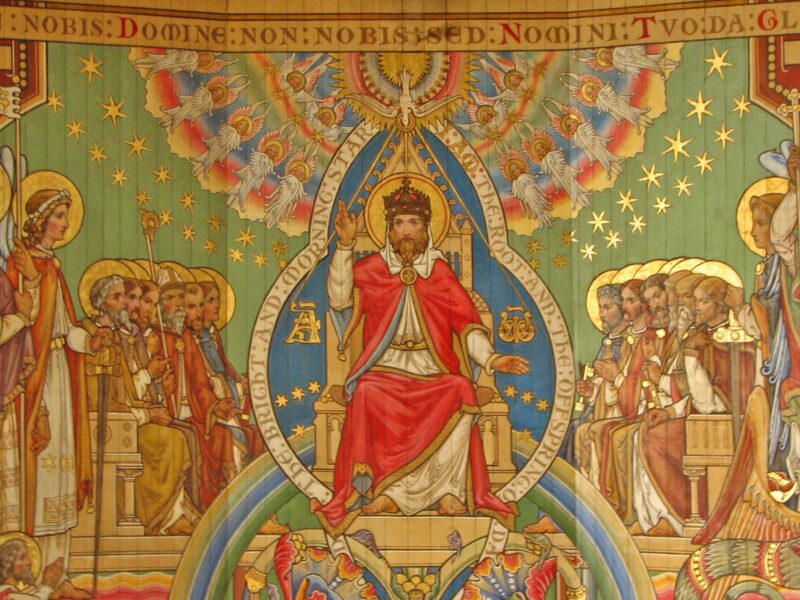
Beauty in the Midst of Horror
Twelfth Sunday of the Year. Fr Dominic White distinguishes confidence in God from Stoicism.
Once upon a time, a young woman was touched by the beauty of a tree. In fact, for her this was a deep spiritual experience. Being a journalist, she was a good writer, and wrote down the experience in her diary, which was later published and continues to be popular. She came from a quite well off family, and was well educated.
So lucky her, eh? Successful because privileged?
Well, not quite. This was Etty Hillesum, a Dutch Jew who died in the Holocaust. While her family was indeed quite well off and valued education, it was also very dysfunctional and unhappy. Etty moved out, went to university, then worked as a journalist, and looked for consolation with various men. Finding that promiscuity didn’t bring her happiness, she had therapy (quite a bold step in the 1930s). She began to heal, slowly and not smoothly. Her therapist, in spite of their messy relationship, introduced her to the Bible, and this was the start of Etty’s spiritual awakening. But while she was drawing closer to God, the clouds were darkening over the Netherlands, with the Nazi invasion, and increasing persecution of the Jewish community. Etty refused to go into hiding, but instead worked for the Jewish Council to give what aid was possible to her fellow Jews who were being arrested and interned. Then Etty was herself interned in the Westerbork camp. Her experience of the tree comes from that time: even as she recounted with unflinching factuality the horrors of Nazi oppression, she was also touched at very turn by the beauty of nature, and beautiful moments between people, all this held together in her inner life of prayer. Her last entry recounts how she and others were on a train to Auschwitz, singing. Perhaps the same train which also carried St Teresa Benedicta of the Cross (Edith Stein) to her death – and people’s last memory of Edith was the radiance of her face.
Perhaps Etty’s (and Edith’s) story might give us a way into today’s readings. Jeremiah has been taken prisoner for saying the unsayable – that the apparently strong Jerusalem faces invasion and capture by the Babylonians, because the city has been weakened by the sin and infidelity of its people. Jeremiah laments the loss of former friends who have turned against him. But – without any sense of process or transition – suddenly Jeremiah says ‘the Lord is at my side’. He even rejoices that the Lord has already delivered ‘the soul of the needy’. Jesus, exhorting his disciples to tell in the daylight what He says to them in the dark, is well aware that this will bring persecution. Christians are probably the most persecuted of the world’s religions, from the murderous attacks of Islamic fundamentalists to Christians in our own society who face ‘cancelling’ and even losing their jobs because they bear witness to the sanctity of human life and marriage. Yet Jesus says not to worry about those who kill the body – the Father who knows when a sparrow falls to the ground has counted every hair on your head.
How are we supposed to make this transition – which is not that comforting, as the Father doesn’t actually stop the sparrows falling – and probably dying from their fall, and won’t stop the death of our body? This is not some sort of magical thinking, pretending everything’s OK, or just focussing on something nice. Dissociation can be a coping strategy but won’t heal in the long term. And Etty Hillesum knew all too well what it was like to seek happiness in the wrong place. Quite simply, what Jeremiah is recounting, and what Jesus points us to, is the utter surprise and transforming love which is God’s grace. This is the healing third between the see-saw of human joy and sorrow, between pleasure and pain. It is to be found in Christ Himself, the new Adam, who enters the full, destructive reality of the sin of the world on the Cross, pouring out His Precious Blood. There is in the Cross both a terrible narrowing – just this one man, just as we are ourselves alone in the uniqueness of our pain and of our calling (you cannot live my life for me) – and an astonishing opening out into the power of the Lord’s Resurrection and Ascension, in which not just humankind but the whole cosmos are made radiant and new.
Etty Hillesum was killed before she had any proper chance to explore any formal religious practice, but there’s something of the ‘anonymous Christian’ in her deep connection with God’s love, and thus her refusal to blame God for the evils of the world, and her reaching out to others, not just practically, but to help them find God inside them. Not just ‘God and me’, which so easily falls into ‘me, myself and I’, but God and us, as social individuals. There’s a parallel between Etty Hillesum and the radiant Edith Stein, who was proud of being a Jewish Christian, who like Etty, refused to escape (it was suggested to her that she could move to a Carmel in Latin America), and while parents on the train to Auschwitz were losing their minds with terror, quietly looked after their children.
We are not called to be Stoics, emotionally withdrawn and proudly indifferent to pleasure or pain. That is, ultimately, to disconnect from oneself and therefore to disconnect from others. Rather, we are graced, as Christ’s body, equally in the joy and pain which often are equally present in our lives, to connect with God in Him and others in Him, as social individuals. Each of us has our own unique Cross and our own unique gift, looking by the grace of God’s gaze at the horror and the beauty together, and in that moment sharing God’s radiant and transforming grace.
Readings: Jeremiah 20:10-13 | Romans 5:12-15 | Matthew 10:26-33
Image: monument to Etty Hillesum at Winschoten, photographed by Donald Trung Quoc Don, via Wikimedia Commons, CC BY-SA 4.0. The first line of the inscription reads ‘en toch vind ik het leven mooi’ – ‘and yet I think life is beautiful’.


